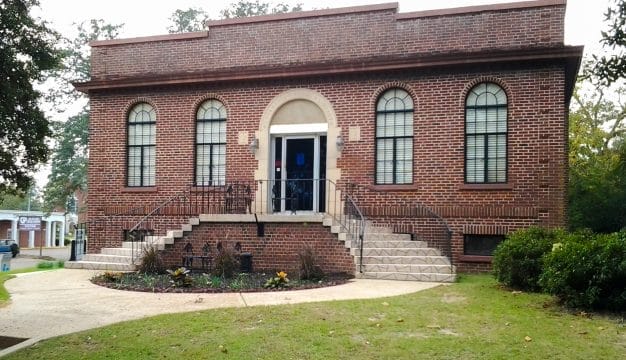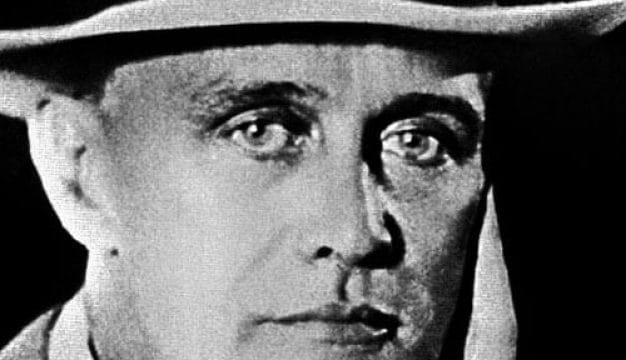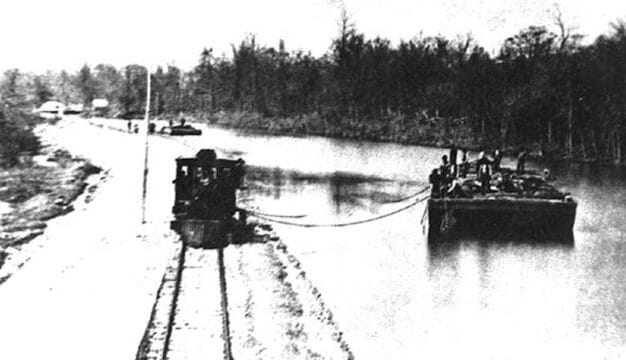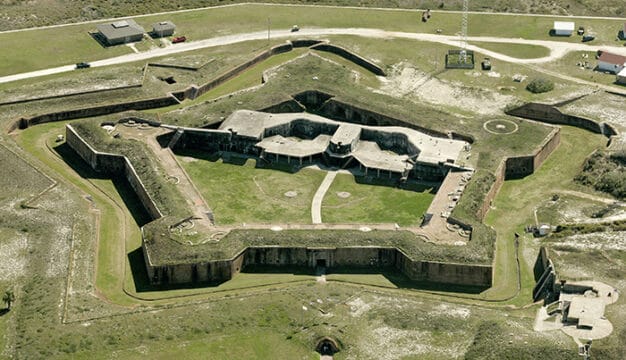Leslie Lee Gwaltney
Leslie Lee Gwaltney (1876-1955) was a Southern Baptist pastor, denominational statesman, and editor of The Alabama Baptist (TAB), the weekly newspaper of the Alabama Baptist State Convention (ASBC). For 31 years, he served as the weekly’s editor and from that position played a significant role in shaping the opinions of Alabama Baptists, sometimes promoting and espousing controversial opinions not embraced by all of his readers.
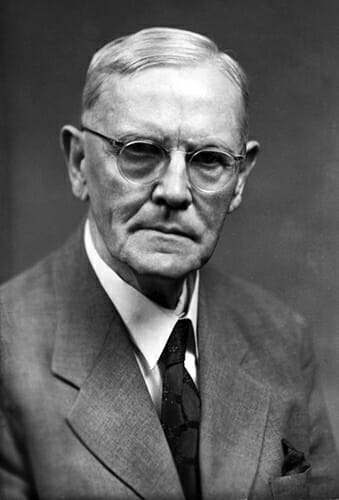 Leslie Lee Gwaltney
Gwaltney was born on March 5, 1876, in Elberon, Virginia, one of ten children born to John Avington Merritt Gwaltney, a farmer, and Sarah Rebecca Deering Gwaltney. Gwaltney attended local schools and then attended the University of Richmond and Union Theological Seminary of Richmond. In 1902, he married Richie Thornton Peters, with whom he would have five children. In 1908, he earned a master of theology degree from Southern Baptist Theological Seminary at Louisville, Kentucky. That same year, he moved to Alabama and served as pastor for almost two years at the First Baptist Church of Prattville, Autauga County. There, his congregation included a diverse socio-economic mix of white textile workers, cotton gin mill workers, farmers, and local businessmen and professionals, as well as a large number of widows supported by the church. Although brief, this pastorate served as a laboratory for Gwaltney’s progressive social justice viewpoints and cemented his devotion to a Christian social service philosophy.
Leslie Lee Gwaltney
Gwaltney was born on March 5, 1876, in Elberon, Virginia, one of ten children born to John Avington Merritt Gwaltney, a farmer, and Sarah Rebecca Deering Gwaltney. Gwaltney attended local schools and then attended the University of Richmond and Union Theological Seminary of Richmond. In 1902, he married Richie Thornton Peters, with whom he would have five children. In 1908, he earned a master of theology degree from Southern Baptist Theological Seminary at Louisville, Kentucky. That same year, he moved to Alabama and served as pastor for almost two years at the First Baptist Church of Prattville, Autauga County. There, his congregation included a diverse socio-economic mix of white textile workers, cotton gin mill workers, farmers, and local businessmen and professionals, as well as a large number of widows supported by the church. Although brief, this pastorate served as a laboratory for Gwaltney’s progressive social justice viewpoints and cemented his devotion to a Christian social service philosophy.
In 1910, he moved to the First Baptist Church of Greenville, Butler County, which he would serve for eight years and which most Baptist leaders recognized as the most influential church between Montgomery and Mobile. Despite the fact that many Alabama Baptists held conservative theological and political views, Gwaltney boldly advanced controversial topics such as women’s suffrage and opposition to the convict-lease system and preached sermons uncharacteristic of most Southern Baptist pastors of that era. During that time, Frank Barnett, the editor of TAB, also enlisted Gwaltney to write regular columns, many of which advanced similar progressive concepts. Barnett hired him to serve as associate editor, and when Barnett took a medical leave of absence, Gwaltney functioned as editor. In 1918, Gwaltney became pastor of the First Baptist Church of Florence, Lauderdale County, and had to resign his position as associate editor. However, he only remained in this pastorate for approximately a year: in 1919, Barnett sold TAB to the ABSC, which hired Gwaltney to serve as its editor.
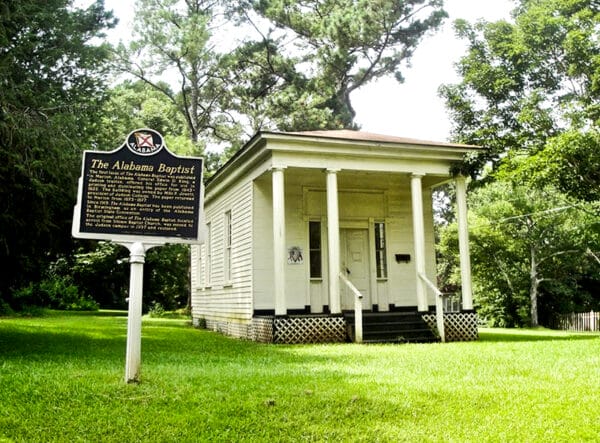 Alabama Baptist Building
Gwaltney began his tenure in April of that year and over the three decades that followed, he became the leading Baptist voice in the entire state and one of the most influential Alabamians. A fervent crusader for Prohibition both before its adoption and during its implementation, and continuing after its repeal, Gwaltney also spoke out for a number of other Progressive causes. Both as a pastor and an editor, he advocated for women’s suffrage, the creation of a National Labor Day, reduced work hours for laborers, stronger child labor laws, the end of the convict-leasing system, and the educational reforms of liberal and progressive leaders like Julia Tutwiler and Bibb Graves. While upholding segregation, he opposed lynching as barbaric. He also openly positioned himself as a “theistic evolutionist” both before and after the famous Scopes Trial, in which famous attorney Clarence Darrow defended Tennessee school teacher, John Scopes, on trial in July, 1925, on charges of violating state laws forbidding the teaching of Darwinian evolution in public schools. As controversy erupted, Gwaltney carefully steered the paper to the theological center between “modernists” and “fundamentalists” so as not to alienate either position that Alabama Baptists took.
Alabama Baptist Building
Gwaltney began his tenure in April of that year and over the three decades that followed, he became the leading Baptist voice in the entire state and one of the most influential Alabamians. A fervent crusader for Prohibition both before its adoption and during its implementation, and continuing after its repeal, Gwaltney also spoke out for a number of other Progressive causes. Both as a pastor and an editor, he advocated for women’s suffrage, the creation of a National Labor Day, reduced work hours for laborers, stronger child labor laws, the end of the convict-leasing system, and the educational reforms of liberal and progressive leaders like Julia Tutwiler and Bibb Graves. While upholding segregation, he opposed lynching as barbaric. He also openly positioned himself as a “theistic evolutionist” both before and after the famous Scopes Trial, in which famous attorney Clarence Darrow defended Tennessee school teacher, John Scopes, on trial in July, 1925, on charges of violating state laws forbidding the teaching of Darwinian evolution in public schools. As controversy erupted, Gwaltney carefully steered the paper to the theological center between “modernists” and “fundamentalists” so as not to alienate either position that Alabama Baptists took.
Prior to Gwaltney becoming editor, the paper struggled financially. But under his leadership, subscription numbers grew through an aggressive campaign to form reading clubs and encourage churches to supply TAB to their members, stabilizing the paper’s finances. In addition, Gwaltney regularly visited local congregations, sharing a four-minute message stressing the need for Alabama Baptists to invest in their paper.
Through his encouragement in his editorials and articles by others he published, both the ABSC and many Alabama Baptist churches limited the amount of debt they accrued in the 1920s, and he cautioned his readers about the dangers of speculating in the stock market. This fiscal responsibility enabled the ABSC and many Alabama Baptist congregations to weather the Great Depression. Throughout the Depression, he urged churches to pursue “practical Christianity” such as feeding the poor, caring for orphans, aiding widows of pastors, and returned to social justice themes he had advanced as a pastor and as editor in the 1920s. He publicly supported a wide range of New Deal programs as well.
He avidly supported Pres. Woodrow Wilson and the establishment of the League of Nations. An ardent pacifist, he supported disarmament treaties throughout the 1920s. But with the rise of Japanese imperialism and Nazism in the 1930s, he changed his position and supported the interventionist policies of Pres. Franklin Roosevelt. After U.S. entry into World War II, he fervently backed the Allied war effort and, as the war drew to a close, advocated for the establishment of the United Nations.
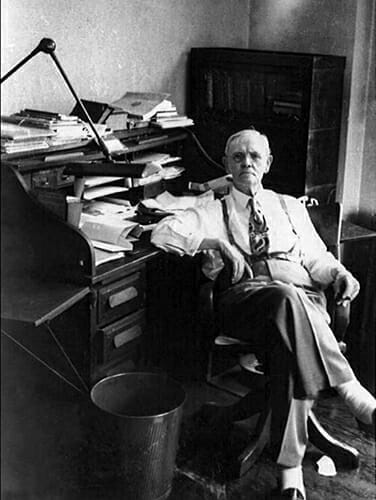 Leslie Lee Gwaltney
In the years between 1945 and his retirement in 1950, Gwaltney continued to support the widespread expansion of the Southern Baptist Convention. Even though conservative Alabama Baptists opposed many of his more progressive or liberal opinions, he maintained his position as editor and had the support of a wide Baptist constituency because he upheld segregation even as he advocated for other social justice causes. He also visited many Baptist churches, remained active in Southern Baptist institutional life, promoted evangelism and revivalism, and allowed both his supporters and opponents space to voice their opinions in TAB. Setting a precedent followed by later editors, he regularly reported news from local congregations in addition to promoting state-wide events. Whereas he frequently addressed social justice issues and reflected upon national and international news, he also published columns and articles by denominational leaders and both pastors and lay people that dealt with practical daily concerns. Even if Alabama Baptists did not always agree with Gwaltney, they knew and respected him as a responsible journalist and one of the most influential religious leaders in the state for more than 30 years. They also knew he had faced and conquered personal tragedy, losing two of his five children, and overcoming a lengthy illness by his wife as well as his own major health concerns.
Leslie Lee Gwaltney
In the years between 1945 and his retirement in 1950, Gwaltney continued to support the widespread expansion of the Southern Baptist Convention. Even though conservative Alabama Baptists opposed many of his more progressive or liberal opinions, he maintained his position as editor and had the support of a wide Baptist constituency because he upheld segregation even as he advocated for other social justice causes. He also visited many Baptist churches, remained active in Southern Baptist institutional life, promoted evangelism and revivalism, and allowed both his supporters and opponents space to voice their opinions in TAB. Setting a precedent followed by later editors, he regularly reported news from local congregations in addition to promoting state-wide events. Whereas he frequently addressed social justice issues and reflected upon national and international news, he also published columns and articles by denominational leaders and both pastors and lay people that dealt with practical daily concerns. Even if Alabama Baptists did not always agree with Gwaltney, they knew and respected him as a responsible journalist and one of the most influential religious leaders in the state for more than 30 years. They also knew he had faced and conquered personal tragedy, losing two of his five children, and overcoming a lengthy illness by his wife as well as his own major health concerns.
Gwaltney died on November 10, 1955, in Birmingham and was buried in Forest Hill Cemetery in Birmingham.
Additional Resources
Flynt, J. Wayne. Alabama Baptists: Southern Baptists in the Heart of Dixie. Tuscaloosa: University of Alabama Press, 1998.
Wells, Elizabeth, and Grace Thornton. The Alabama Baptist: Celebrating 175 Years of Informing, Inspiring, and Connecting Baptists. Birmingham: The Alabama Baptist, 2017.
